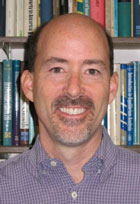I’m an economist who entertains a broad palette of possible tastes and motives in the people I study. Some of these tastes and motives come from psychological, some from sociology, some from linguistics, and some just from approaching the world with open eyes. When I was in graduate school in the mid1980s, the observation that people might behave generously toward others they were unrelated to them was considered a minor issue. Moreover, the orthodoxy of the times suggested that markets, competition, and other ideas of “rationality” would quickly extinguish anything but narrow self-interest. To assume otherwise was, at the time, considered “non-standard economics.’’ Today this approach is given a more accommodating label: Behavioral Economics.
As a student, I saw a paper in a major journal that used the logic of
narrow self-interest to argue against government help for charities,
an argument I viewed as contradicting everything I saw about giving in
the real world. In my first major publication in 1988 I used the
orthodoxy against itself. I showed that “standard economics,” when
applied to charity and giving, led to absurd and inaccurate
predictions that were virtually irrelevant to the human experience.
The economist’s notion of self-interest, I argued, needed to be
broadened to include unselfish behavior. I stated in the conclusion to
that first publication that, “Phenomena such as guilt, repentance,
envy, sympathy, emulation, a taste for fairness, or a heuristic for
duty may develop naturally from a society of self-interested agents,
and institutions may emerge that provide ‘selective incentives’ for
giving. Economic models that reflect these possibilities might
ultimately help us understand both the failures and successes of
private giving.” This quote has summarized my research agenda ever
since.




